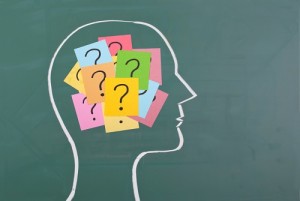Schizophrenia is one of the more complicated mental health disorders, and has often been misrepresented in the media.
We have a lot of derogatory terms like the word “schizo” or “split personality” and the general public may have come to believe the myths rather than the facts around what it is and what it is not.
Schizophrenia affects about 1% of the population and is uncommon but not a rare condition. Lots of average people in our society have this condition and live happy normal lives in our community.
Common Myths of Schizophrenia
The term split personality refers to another disorder called dissociative identity disorder or multiple personality disorder. Often the experience of dissociation may occur due to past trauma and it is a very rare and controversial label. The term split personality means that the person has symptoms of being two different people. Since this such a rare disorder it is more likely that the term split personality refers to someone being two-faced or having the ability to change their mood dramatically.
Significant mood changes may be a result of an underlying mood disorder like bipolar, depression or a person may be cyclothymic. Another explanation for sudden mood changes can be related to trauma. Sometimes those that have experienced significant trauma will have moments when they are triggered and experience severe emotional flashbacks, which may look like they have a split personality.
Medication and substances can also alter a person’s personality and should be considered if there were sudden and severe changes. Another explanation may be nothing to do with a mental disorder and simply about social skills. If someone is skilled at acting, then they may behave differently because they are skilled at doing so!
The word schizo may refer to someone doing odd things that don’t make sense to others. I think it is a common word that means crazy and that a person is not making sense. Another popular misconception is that acting odd is a mental disorder. As human beings we act odd often enough for lots of reasons. Sometimes we go through a phase of changing our core beliefs, join or leave a religion, join or leave a relationship or some people may be novelty seekers and try out different things that may make them look different. Some people are eccentric and that also may be an explanation.
 What is Schizophrenia?
What is Schizophrenia?
Schizophrenia is a complicated mental health condition characterised by someone experiencing symptoms such as delusions (eg hearing voices), hallucinations, disorganised speech, becoming motionless (catatonic), severely disorganised and sometimes losing the ability express emotions. It takes many months of being ill before a diagnosis can be made. In my opinion the schizophrenia label refers to many disorders and even today we have no single physical explanation for the disorder. We only know that people suffer greatly with the condition, and that it is a very confusing disorder for family to manage, because the symptoms affect communication and emotional regulation.
There are many terms such as schizoaffective disorder and schizophreniform disorder, delusional disorder, brief psychotic disorder and bipolar disorder/manic depression that often confuse both the person experiencing symptoms and their family. It has been my preference to use labels rarely because at the end of the day we still don’t know what “it” is! All of these labels don’t help us to know if the person with the symptoms is in pain and suffering. The labels do help researchers study the disorders and our medical system needs a label in order to permit rebates and prescribe medications. Even with a label we can only guess at whether the condition will disappear after one episode or stay for a lifetime.
Schizophrenia Recovery
Many people labelled with schizophrenia will get better and often with no explanation. Of course social support and a positive environment will help. Medication can keep symptoms at bay for some and for others medications are not effective.
Some people with schizophrenia live with mild symptoms that don’t affect day-to-day functioning and they have normal families and jobs, and others are so affected that they will need to be hospitalised for long periods of time.
There are many things that can make the symptoms worse. These include substance misuse, lack of sleep, relationship stress, lack of housing, poor eating habits and trauma.
I have been involved in training psychiatry registrars in Queensland some years ago on recovery from Schizophrenia across the lifespan. I enjoy taking a non-medical view of schizophrenia as often as possible. Sometimes odd behaviour is just odd behaviour and doesn’t need a drug or behaviour program. Sometimes being messy isn’t a symptom but just that single males living away from home might not be tidy. Hallucinations can be benign and many of our society have spiritual beliefs and the experience of hearing voices is a normal part of life of many human being’s lives across the world, without a diagnosis of schizophrenia ever being needed!
 Author: Vivian Jarrett, B Psych (Hons), MAPS, MAICD.
Author: Vivian Jarrett, B Psych (Hons), MAPS, MAICD.
Vivian Jarrett is the Clinic Director at Vision Psychology in Wishart and now M1 Psychology at Loganholme. She is passionate about providing high quality psychology services to Australians from all walks of life.
To make an appointment try Online Booking. Alternatively, you can call M1 Psychology Brisbane on (07) 3067 9129